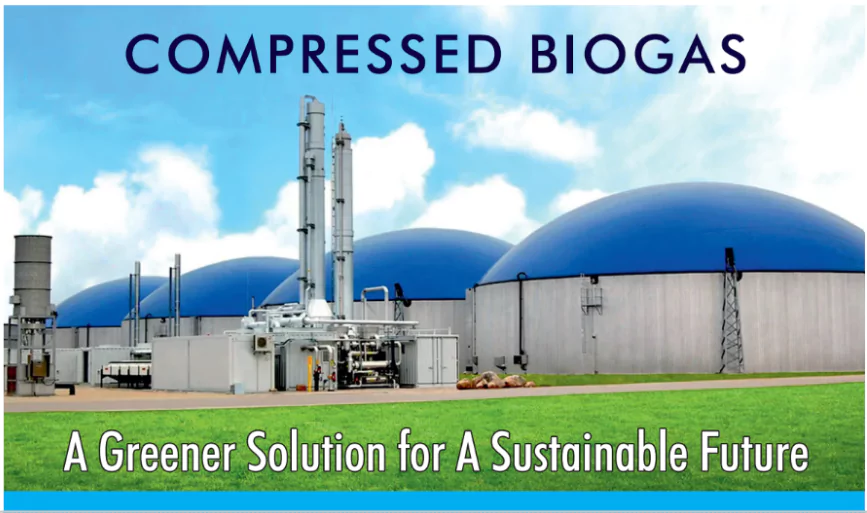Recently, Prime Minister Narendra Modi inaugurated the construction of four Compressed Bio-Gas (CBG) plants in Assam.
More on News
- These plants will be set up in Guwahati, Jorhat, Sivasagar, and Tinsukia.

About Biogas
- It is a renewable fuel.
- formed when animal or food waste is broken by the microorganism in the state of lack of oxygen.
- Biogas is primarily made up of hydrocarbons which are flammable and can be used to generate heat and energy.
- Main Component: Methane is the primary gas in biogas ( around 45% – 75% by volume).
Enroll now for UPSC Online Course
About compressed Bio- Gas
- CBG is a renewable fuel made from organic waste materials like agricultural residue, animal dung, food waste, and municipal solid waste.
CBG Blending Obligation (CBO)
- This is the initiative of the government to promote the consumption and production of CBG.
- It mandates blending of CBG with compressed natural gas and piped natural gas in the city gas distribution.
- Voluntary phase: CBG blending obligation will be voluntary until the financial year of 2024- 25.
- Mandatory phase: From 2025- 26, CBO will become mandatory.
- Blending requirements: In FY 2025- 26, CBO will require 1% blending of CBG with total CNG and PNG.
- The blending % will increase to 5% by year FY 2028 -29.
|
- The production process involves anaerobic digestion, where waste materials decompose without oxygen.
- This process produces methane-rich biogas which is more than 90%.
- Properties and Uses: CBG has properties similar to Compressed Natural Gas (CNG) and can be used as an eco-friendly fuel for vehicles, industries, and other commercial applications.
Benefits of CBG Plants
- Waste to Energy: Turns organic waste into clean energy which helps in waste management.
- Impact of Environment: Reduces carbon emissions for better air quality and climate action.
- Job Growth: Creates local jobs for plant construction and operation.
- Eco-friendly: CBG is a sustainable alternative to conventional fuels, helping to reduce environmental pollution.
- Energy Independence: It decreases reliance on imported natural gas and crude oil, supporting energy security.
Challenges of CBG Plants
- High Costs: Setting up plants needs a lot of money, which can slow down growth.
- Technical Needs: Advanced technology and knowledge are needed for plants to work well.
- Waste Collection Problems: Collecting and transporting organic waste can be difficult, especially in remote places.
- Private Sector Issues: Working with private companies can be tricky in terms of coordination and management.
- Regulatory and Policy Framework for CBG : Well-defined and supportive policies are crucial for the growth of the Compressed Bio-Gas (CBG) sector.
- Inconsistent rules and a lack of standardization can slow down the development of the sector.
- Health Hazards: Unscientific waste disposal can lead to diseases like dengue and malaria.
- Air pollution from burning biomass is linked to chronic diseases such as asthma, cancer, and heart disease.
Check Out UPSC CSE Books From PW Store
Government Initiative
- Sustainable Alternative Towards Affordable Transportation initiative: It was launched by The Ministry of Petroleum and Natural Gas (MoPNG) in 2018.
- MoPNG associated with Public Sector Undertaking (PSU) and Oil Marketing Companies (OMC) for launching SATAT. .
- Objective: The aim of this initiative was to set up plants for compressed biogas and to make biogas accessible for use as automotive fuel.
![]() 3 Oct 2024
3 Oct 2024

